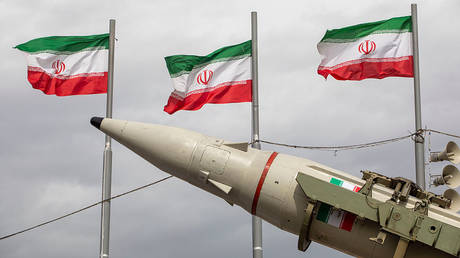
“Show me” the hostile act, Saudi energy minister says in response to claim OPEC weaponized energy
OPEC leaders on Wednesday rejected insinuations that they were weaponizing energy, as Washington accused the organization of “siding with Russia.” The OPEC+ group announced it would be cutting production starting in November, in order to deal with the uncertainty on the global market.
“Are you using energy as a weapon?” Hadley Gamble of CNBC asked the energy minister of Saudi Arabia, Prince Abdulaziz bin Salman at a press conference in Vienna on Wednesday.
“A very provocative question… which I take pleasure in answering, Hadley,” Prince Abdulaziz replied.
While various media outlets speculated that OPEC might curb output by 500,000 to a million barrels per day, the organization announced the cut would amount to two million barrels per day, the equivalent of 2% of global demand. It is the biggest cut since 2020, when Covid-19 lockdowns crashed the demand for oil across the globe.
“It’s clear that OPEC+ is aligning with Russia with today’s announcement,” White House press secretary Karine Jean-Pierre told reporters on board Air Force One.
The White House also released a statement by National Security Advisor Jake Sullivan and National Economic Council Director Brian Deese, who said that President Joe Biden was “disappointed by the shortsighted decision” to cut production, and that Biden will “consult with Congress on additional tools and authorities to reduce OPEC’s control over energy prices.”
OPEC’s decision came as the EU was preparing to announce a new packet of sanctions against Moscow, which would have tried to impose a price cap on Russian oil through shipping restrictions. The price cap was endorsed by the US and its G7 allies.
The organization still has an “open door” for the EU to discuss energy issues, OPEC Secretary-General Haitham al-Ghais of Kuwait told Gamble “I’m waiting for someone to knock on that door.”
“We are not endangering the energy markets,” al-Ghais added. “We are providing security, stability to the energy markets.”
“At a price?” the CNBC reported interjected.
“Everything has a price. Energy security has a price as well,” al-Ghais replied.




